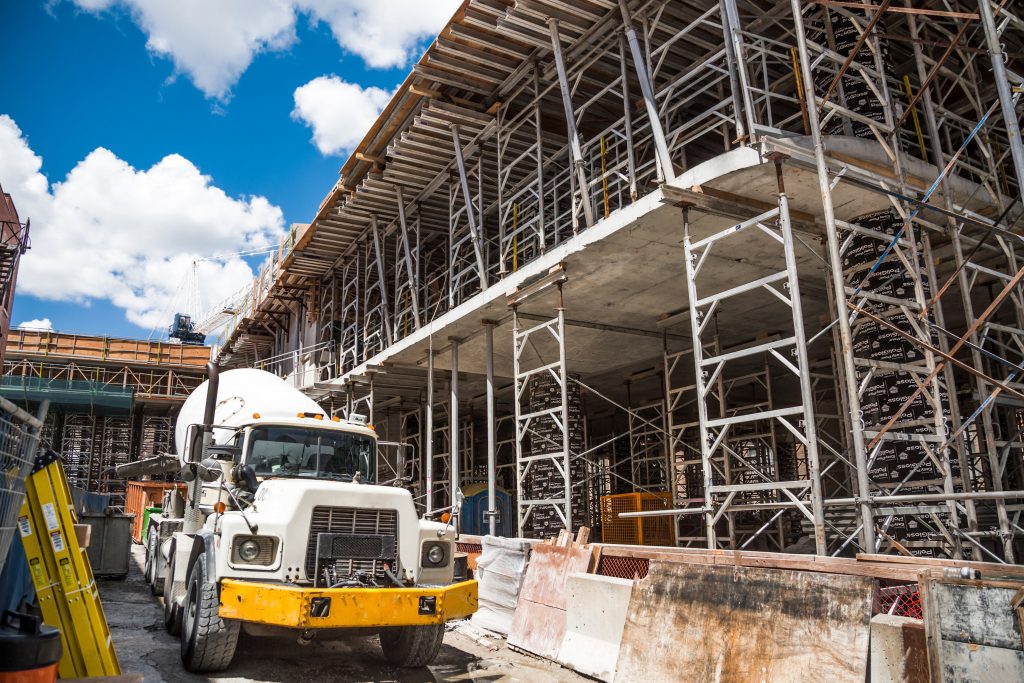Only leave your house when necessary. Keep two metres apart. Wash your hands. Don’t touch your face. Cough into your arm. Don’t gather in large groups. Respiratory droplets. Community transmission. Flattening the curve. Asymptomatic. Pre-symptomatic. N-95 masks. Ventilators. Insert your own term here.
It seems that just about everywhere we turn (or click!), we are reminded of the intense battle being waged against the novel coronavirus, now dubbed by leaders around the world as “the invisible enemy”. A deadly disease (COVID-19) caused by a novel (new) strain of coronavirus, whose origin and source are yet to be determined with absolute certainty. What is certain, however, is that people are dying; livelihoods are being rattled; and economies are collapsing. And people just want to know when life is going to get back to normal. In ways unthinkable mere months ago, our lives have been put on pause — and we just can’t seem to find the play button.
The Church has not been exempt from the immediate and collateral damage of the COVID-19 crisis. We have not been able to say, as our spiritual ancestors in Egypt were, that “only in the land of Goshen, where the children of Israel were, there was no hail” (Ex. 9:26). No — the hail of this pandemic has fallen on the Church too, and its pain has been felt. Our members have contracted the virus. Some have even died. Jobs have been lost. Hours have been cut back. Fear and anxiety have crept in. And if this were not enough, we have been prevented from gathering together in person when we would seem to need it most! And the Church finds herself just as eager as the world to know when life is going to get back to normal.
However, the temptation for us Christians at a time like this is to think like the world. Of course, there is a real element of pause that has come upon us all — both in the world and in the Church — and it would be wrong if we did not want things to go back to the way they were (from a social-distancing perspective). But it is just here that the temptation to think like the world must be overcome.
First, the world sees the most important part of life to be severely threatened. For some, it’s their career. For others, it’s economic fallout. For yet others, it’s being able to feel safe in a world that is currently inhabited by nothing other than walking, talking virus transmitters. Whatever it may be, the world feels thwarted in its plans — held back from flourishing in a time of uncertainty and change. As Jesus reminds us, “For where your treasure is, there your heart will be also” (Mt. 6:21). If your treasure is your career (or the economy, or safety), your heart will be bound up in that. And when it is threatened, you will go into panic mode.
Second, the world sees the most important part of life to be brought to a standstill. Again, whether it’s one’s career; summer cottage life; restaurant dining; sports entertainment; shopping mall visits; personal safety; etc., the COVID-19 crisis has halted life in so many ways, and for those whose hearts are bound up in these things, they feel their very identity is under attack and at risk of collapsing.
But the apostle Paul instructs Christians to “not be conformed to this world, but be transformed by the renewing of your mind” (Rom. 12:2). As our minds are transformed by God’s Word, we come to see things differently than the world. We come to see that the most important thing in life is not our career; our cottage; our sports; our income; even our personal safety. We sit at the feet of Jesus and hear Him say:
Do not worry, saying, ‘What shall we eat?’ or ‘What shall we drink?’ or ‘What shall we wear?’ For after all these things the Gentiles seek. For your heavenly Father knows that you need all these things. But seek first the kingdom of God and His righteousness, and all these things shall be added to you.
Matthew 6:31-33
As our minds are transformed by God’s Word, we come to see that the most important thing in life (i.e., Christ, His Church, and His Kingdom) is not brought to a complete and utter standstill in a time of global crisis. Indeed, “He who keeps Israel shall neither slumber nor sleep” (Ps. 121:4). Even when the whole world seems to be put on pause, the God of Israel will not stop working good in the lives of His people! This is why we can triumphantly say that “we know that all things work together for good to those who love God, to those who are the called according to His purpose” (Rom. 8:28)! And what is such confidence grounded in? It is grounded in the great fact that God “has put all things under [Christ’s] feet, and gave Him to be head over all things to the church …” (Eph. 2:22).
King Jesus — who upholds “all things by the word of His power” (Heb. 12:3) — is actually using the COVID-19 crisis to build His Church! Don’t be fooled into thinking that Jesus is just waiting for this pandemic to pass, so He can resume His work in the life of your church! He’s at work even NOW! And there is growth in your own church that God has determined will only come about through this particular trial. Below are three ways King Jesus is building your church during this time of global crisis.
REKINDLING OUR LOVE FOR THE ASSEMBLING OF THE SAINTS!
We read in Hebrews 13:24-25: “And let us consider one another in order to stir up love and good works, not forsaking the assembling of ourselves together …” We all need this reminder, as we can too easily forget how important our fellowship is. We can become dull in our appreciation for the blessing of the holy assembly! The Christian life is a shared life. The highest form of sharing is the sharing of ourselves. We are reminded of this in the Lord’s Supper — where the sacramental bread and wine are put into our hands by the One who shared (and continues to share) Himself without reserve. The second Person of the Trinity did not assume a virtual persona and mediate Himself and His salvation through the Internet. Rather, “the Word became flesh and dwelt among us …” (John 1:14).
The apostolic message was not something that flashed on the Twitter feed. It was not given to them by God as @JesusTheMessiah. It wasn’t a text message. Not even a voicemail. It was a message that was “heard … seen … looked upon, and … handled” (1 John 1:1). Online fellowship meets some of these criteria, but not all. We should long for the in-person hearing, seeing, and handling of our brothers and sisters in Christ. We should be longing for it even more, now that we have been deprived of it for a period of time. As they say, ‘Absence makes the heart grow fonder’. May our hearts grow fonder in this season of physical absence from one another.
APPLYING OUR HEARTS TO TRUE WISDOM!
Moses reminds us in Psalm 90 that life is short, hard, and filled with disappointment: “The days of our lives are seventy years; and if by reason of strength they are eighty years, yet their boast is only labor and sorrow; for it is soon cut off, and we fly away” (v. 10). You would think the sheer brevity, uncertainty, and difficulty of our fleeting existence in this world would send us running to God for eternal refuge on an hourly basis! But such is not the case. Our hearts are sinful. Self-deception is real. We sanitize death with pleasant euphemisms. We deal with our disappointments by escaping from them in one form or another.
As Christians, we are not above the temptation of trying to make our home in this world. We can forget that we are just pilgrims passing through. Even as those with eternal glory at the finish line and “an inheritance incorruptible and undefiled and that does not fade away” (1 Peter 1:4), we can too easily get comfortable in this world and live as if we were never going to have to say goodbye. But part with this world we must. And when our churches are not filled with saints who are ready to hate their lives in this world for the sake of Christ and eternal life (John 12:25), we will be no more than social clubs for the religiously-minded. It is worldly-mindedness that will dilute our churches’ life and message of the power it is meant to have. When we have nothing to offer the world that they do not already possess, they will move on, in search of something that does. As Paul says, “If in this life only we have hope in Christ, we are of all men the most pitiable” (1 Cor. 15:19). Who’s going to want to come to our pity party?!
But when our churches are filled with men, women, boys, and girls who are living every day in light of eternity, the fire of zeal will burn brightly and not go out. And it will, in God’s grace, strangely attract those on the outside, and they will say, like Moses, “I will now turn aside and see this great sight, why the bush does not burn [up]” (Ex. 3:3). Let us hope and pray that the COVID-19 crisis is impressing freshly upon the hearts and minds of God’s people that life in this world is short, uncertain, and filled with disappointment. Only then will we be in a position to receive what Moses prays for in Psalm 90:12: “So teach us to number our days, that we may gain a heart of wisdom”. And applying our hearts to wisdom, may we turn to God and pray with Moses:
Let Your work appear to Your servants, and Your glory to their children. And let the beauty of the Lord our God be upon us, and establish the work of our hands for us; yes, establish the work of our hands.
Psalm 90:16-17
TILLING THE SOIL FOR A GOSPEL HARVEST!
God is the great appointment keeper. He is never early. He is never late. He is always on time, at just the right time, when there could be no better time! God’s people know this delightful truth by experience. Indeed, it was in the fulness of time — God’s perfect, planned, providentially-appointed time — that He “sent forth His Son, born of a woman, born under the law, to redeem those who were under the law, that we might receive the adoption as sons” (Gal. 4:4-5). Jesus was sent forth first to the lost sheep of the house of Israel — at just the right time. Held in bondage — not just to Rome, but to sin. Wandering aimlessly, “weary and scattered, like sheep having no shepherd” (Mt. 9:36). But the Good Shepherd Himself said: “Other sheep I have … them also I must bring, and they will hear my voice” (John 10:16).
The Good Shepherd has been gathering His sheep ever since, calling them out of the world and into His fold, which is the Church. Jesus will not stop calling His sheep to Himself until every last one has been safely brought in. And His timing is perfect. The lost sheep of the house of Israel were primed and ready for the appearance of their Messiah. Indeed, God’s Christ was rejected. But He was rejected by those who were not of His sheep. The Good Shepherd’s true sheep heard His voice and left all to follow Him. While the scribes and Pharisees could not see it, the Son of God could, and said to His disciples: “Lift up your eyes and look at the fields, for they are already white for harvest!” (John 4:35); and “the harvest truly is plentiful, but the laborers are few. Therefore pray the Lord of the harvest to send our laborers into His harvest” (Mt. 9:37-38).
Might it perhaps be that the Lord of the harvest is preparing a field to be reaped in these coming days? Is King Jesus using this global pandemic to work in the hearts of many who are about to hear the voice of their Good Shepherd? God Himself knows. But let us hope and pray that it is so! And let us be ready to welcome and receive those sheep should God bring them to break down our doors. May we be ready to answer their questions. To point them to Jesus. To show them that we, like them, are sinners in need of His saving grace. And most of all, may we be ready to love … as we have been loved.
By Pastor Dan (April 2020)
*Unless otherwise indicated, all Scripture quotations taken from the New King James Version (NKJV). Copyright 1982 by Thomas Nelson, Inc. Used by permission. All rights reserved.


